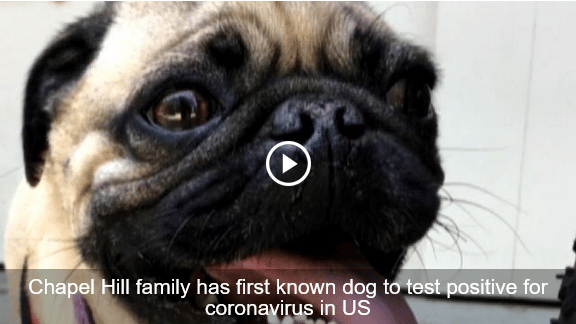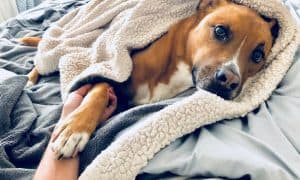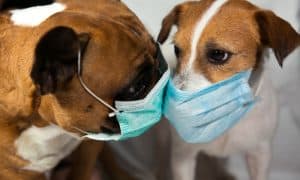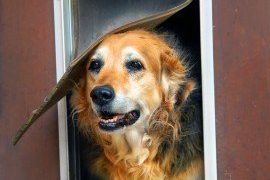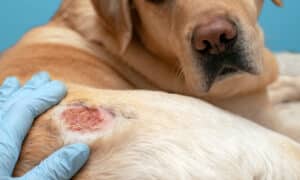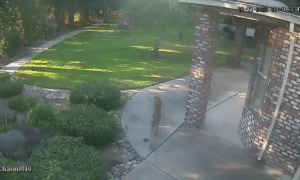“This post contains affiliate links, and I will be compensated if you make a purchase after clicking on my links.”
A Chapel Hill, North Carolina family were all quarantined together, along with their pets, after multiple family members were diagnosed with COVID-19 as a result contracting the novel Coronavirus.
Duke University researches conducted a study on the McClean family, testing mom, dad, two kids, and all the family pets. That’s when they discovered Winston, the family Pug, tested positive for Coronavirus.
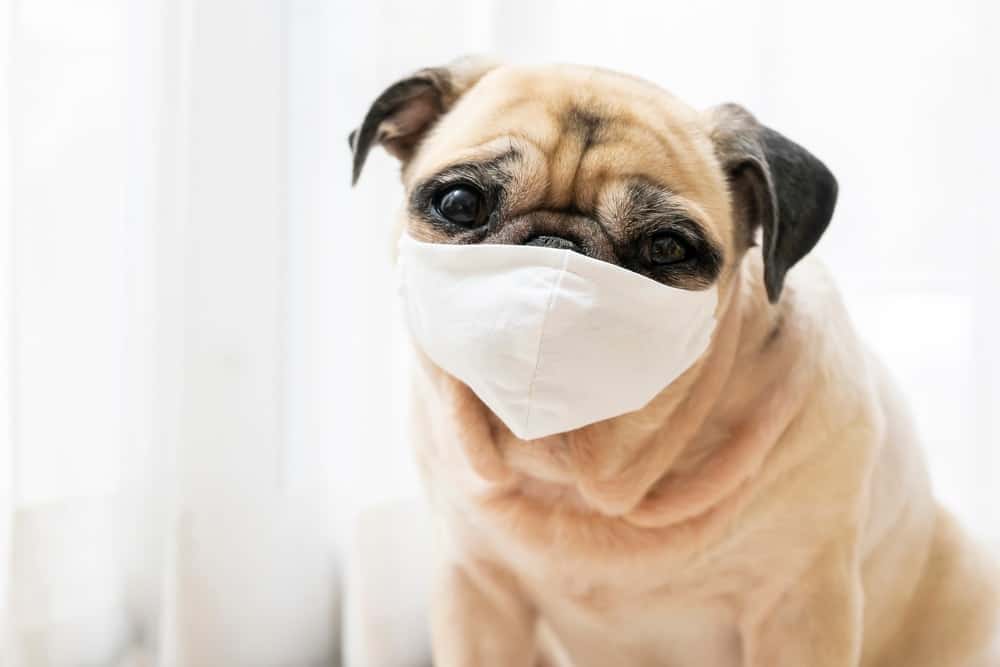
It is important to note that while Winston tested positive for the virus that causes COVID-19, he was not diagnosed with the disease.
Still, the Centers for Disease Control continue to assert that the risk of infecting your pets is extremely low and there is no known risk of contracting the virus from pets.
The mother, Heather McLean, is a pediatrician at Duke while the father, Samuel, works in the emergency room at UNC Hospitals. The family believes one of the parents contracted the coronavirus at work, then brought it home to the family where it quickly spread.
Heather, Samuel, and their son all tested positive for COVID-19. Their daughter did not become infected. Of the family pets (two dogs and a cat), only Winston was found to have contracted the virus.
The human family members were tested via blood tests, oral, and nasal swabs. The animals were only tested via oral swabs.
Dr. Chris Woods, principal investigator of the Duke study in which the McCleans were tested, told WRAL, “The virus that causes COVID-19 was detected,” and he believes it’s the first known positive case in a dog in the United States.
Heather McClean said Winston displayed some mild symptoms of illness, but was back to normal within just a few days. “Pugs are a little unusual in that they cough and sneeze in a very strange way. So it almost seems like he was gagging, and there was one day when he didn’t want to eat his breakfast, and if you know pugs you know they love to eat, so that seemed very unusual,” she said.
Winston “licks all of our dinner plates and sleeps in my mom’s bed, and we’re the ones who put our faces into his face. So, it makes sense that he got [the virus],” McLean’s son, Ben said.
Heather McClean urges pet parents to not become worried about their furriest family. “Hopefully we’ll learn more through the research study, and I think because there’s not a lot of studies and sampling pets, we just don’t know yet.”
If you share your home with animals, the CDC recommends the following:
- Do not let pets interact with people or other animals outside the household.
- Keep cats indoors when possible to prevent them from interacting with other animals or people.
- Walk dogs on a leash, maintaining at least 6 feet from other people and animals.
- Avoid dog parks or public places where a large number of people and dogs gather.
- Talk to your veterinarian if your pet gets sick or if you have any concerns about your pet’s health.
If you are sick with COVID-19 or suspect that you might be, you should restrict contact with your pets and other animals, just like you would with people. If you are sick, the CDC recommends:
- When possible, have another member of your household care for your pets while you are sick.
- Avoid contact with your pet including, petting, snuggling, being kissed or licked, and sharing food or bedding.
- If you must care for your pet or be around animals while you are sick, wear a cloth face covering and wash your hands before and after you interact with them.
- If your pet becomes sick, do not take them to the veterinarian yourself. Call your veterinarian and let them know you have been sick with COVID-19. Your veterinarian can evaluate your pet and determine the next steps for your pet’s treatment and care. (The CDC has also released guidelines for veterinarians during the COVID-19 response).
According to the CDC, there is no evidence that animals are playing a significant role in the spread of COVID-19. Based on the information available, they consider the risk of animals spreading COVID-19 to people to be low. That said, it’s always a good idea to practice healthy habits around pets and other animals. The CDC recommends:
- Wash your hands after handling animals, their food, waste, or supplies.
- Practice good pet hygiene and clean up after pets properly.
- Talk to your veterinarian if you have questions about your pet’s health.
- Be aware that children 5 years of age and younger, people with weakened immune systems, and people 65 years of age and older are more likely to get sick from germs some animals can carry.
For more information, visit the Centers for Disease Control website and their Frequently Asked Questions about COVID-19 and Animals.


